African and Developing Countries’ Higher Education Summer Skills Academies
ANNUAL 2-WEEK SUMMER RETREATS ON
Skills for Students, Graduates, and Start-Ups
Making African and Developing Countries’ Students and Graduates Highly Employable, Entrepreneurial, and Globally Competitive with Subject Matter Knowledge and Generic Skills
(2021 SSGS)
With World-Renowned Scholars from Different Fields of Specialization
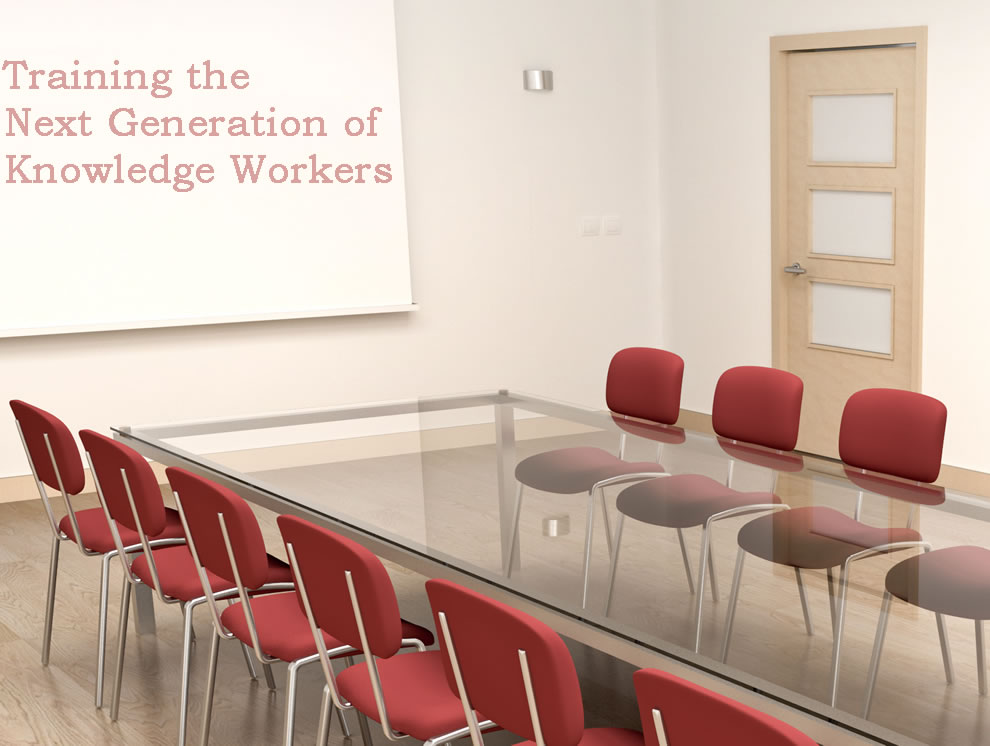
Organised by
The International Centre for Research and Human Development (CREHUD), Dominican University, Nigeria,
In Association with
The African Higher Education and Research Observatory, UK
Venues and Dates
Dominican University Ibadan, Oyo State, Nigeria;
(for South West, South East and South South zones in Nigeria)
Date: Monday 2 – Friday 13 August 2021: 9am -5pm
University of Abuja, Nigeria
(for North West, South East and North Central Zones in Nigeria)
Date: Monday 16 – Friday 27 August 2021 ; 9am -5pm
Rationale for the Retreate
Have you ever wondered why many Chief Executive Officers of big corporations in developed countries like UK sometimes run the outfits mainly based on their first-degree qualifications? Why graduate students from some African universities may not competently manage sections of workforces without at least two years on-the-job training? Hence, why companies prefer to hire internationally-trained students from UK and USA, for example?
In order to close the yawning gap between African and developing countries’ students and graduates and those trained internationally, the International Centre for Research and Human Development (ICREHUD) at Dominican University, Ibadan, Nigeria, www.duicrehud.com, and the African Higher Education and Research Observatory (AFRIHERO), UK, www.afrihero.org.uk, present this series of intensive 2-week annual Skills for Students, Graduates, and Start-ups (SSGS) summer retreats.
The retreats aim to equip students, graduatesand professionals, including beginning academics, with the skills they need to become highly employable, entrepreneurial, and globally competitive in their chosen careers, further studies, and professional qualifications, anywhere in the world.
The time and intellectual commitments involved in developing the courseware for two years in the UK amount to a conservative estimate of some £100,000, but we see this as a sacrifice what making to accelerate the socio-economic development of Africa, through top-quality skills for students, graduates, and start-ups.
This suite of Nigerian-based retreats is the first in the series. Given the very large population of Nigeria (circa 200 million), it is run in two locations (North and South) to cover the six geopolitical zones in the country. Our initial target is to coach 1000 participants from each zone on all the skills areas covered in the retreats, for example the 32 skills of highly-creative people and the 15 laws of success. This target will be pursued annually in order to diffuse these fundamental skills pervasively across the country. The retreats are also open to delegates from Africa and other (developing) countries. Hence, any delegate from all countries in the world can attend the training.
In future the retreats will be rotated to different African countries, typically the capital cities. Given how important these skills are for boosting the socio-economic development of African countries, we envisage having to run the retreats in different regions of Africa each year. All countries, especially developing countries, can bid to host the event by liasing with AFRIHERO and ICREHUD.
Alongside these inaugural retreats, AFRIHERO UK and ICREHUD experts will develop online courses and super-books for the retreats to be called
• Online SSGS Masterclasses and Related Reading Courses.
These masterclasses will not only provide continuing support for the participants, but also cascade the training to other learners across the world.
Also, individual organisations across academia, industry, and the public sector can request custom-built re-runs of the retreats as part of their staff development activities. For example, universities and polytechnics can request the training during holidays. Banks and financial services organisations, government ministries, departments, and agencies can request in-house versions of the training. The training is apposite for imbuing new employees with smart skills for the future.It is arguably the most comprehensive SSGS skills currently assembled anywhere in the world and supported with a deep pool of well-researched notes, case studies and stories, experts, and web resources.
In developing these customized versions of the retreats, ICREHUD and AFRIHERO experts can work with organisations to create case studies of how the skills relate to specific job roles for line, middle-level and senior staff in the organisations.
Executive Training sessions can also be developed for top management. For these adaptations of the training, the course syllabus can be covered intensively in one-week using appropriate blended learning (online and face-to-face) approaches.
2. Who Should Attend?
• Undergraduate and postgraduate students from higher educational institutions in Africa, developing, and other countries
• Beginning academics who will learn these skills and be prepared to embed them in their teaching
• Officers in higher educational institutions in charge of careers advisory and student services units, who may want to top up the same generic skills they support students to acquire
• Professionals from different ministries, departments, and agencies (MDAs) who need the skills to work smartly and intrapreneurially, thereby adding more value to the organisations
• Staff from start-ups, small- and medium-sized enterprises (SMEs), and other firms in the private sector.
3. Key aims and benefits of the retreats
• Mastery of fundamental laws of success which transcend academia, industry, and public services
• Mastery of related generic and higher-order skills expected of modern graduates
• For each category of skills, effective hands-on experience through individual and group exercises, role plays, case studies, reading lists, critical report writing, individually and in groups, and related presentations
• Using real-life work situations and participants’ experiences to demonstrate how best to apply the skills
• Reflexive and interactive discussions on how to acquire and continually improve on the different skills
• Access to additional readings, online resources, and websites
• Opportunities to register for follow-on support through our Skills for Students, Graduates, and Start-Ups (SSGS) Academy in Afrihero, UK.
4. List of skills sets covered in the retreats
The skills covered during this retreat include:
1. How to use the 15 laws of success explored in Napoleon Hill’s ‘The Laws of Success: The Master Wealth-Builder’s Complete and Original Plan for Achieving Your Dreams’ in your life-worlds (daily life, studies, family, and careers)
2. The 32 skills of highly creative people
3. Study skills
4. Research skills
5. 6 key work skills: Writing, Analysis and problem definition, Listening, Problem solving, Public speaking, and Doing
6. Presentation and communication skills
7. Linking the 6 work skills to 7Es of Education and Enterprise Development: Expertise, Experience, Entrepreneurship, Enterprise Development, Employability, Emotional Intelligence, Engagement/Execution
8. The 9 masteries of entrepreneurship (adapted from the UK National Centre for Entrepreneurship in Education – NCEE): Philosophy, Process, Pedagogy, Personal Entrepreneurship, Strategy, State of the game, Resource acquisition, Operations, and Networks
9. Effective CV writing for different levels of employment, applications, interview tips, and planning your job search
10. Critical thinking skills
11. Howard Gardner’s ‘5 minds for the future’ required in demonstrating the kind of higher-order skills that companies can pay anything for – the discipline, creating, synthesizing, responsible, and ethical minds
12. Assertive and strategic negotiation skills
13. How to apply these skills in setting up business ideas, using knowledge gained from studying different disciplines
14. Simple project planning and management techniques for getting things done effectively and within time, including course work assignments, reports, and projects
15. Personal Development Planning for continuing mastery of these skills
5.Detailed contents of topics covered in the retreats
The 15 Laws of Success
• ‘Definite chief aim; Self-confidence, Self-esteem, and Self-efficacy; The habit of saving; Initiative and leadership; Imagination; Enthusiasm; Self-control; Habit of doing more than paid for; Pleasing personality; Accurate thought; Concentration; Cooperation; Failure; Tolerance; The Golden Rule
The 6 Masteries of Independent Thinking and Job Competences (WALPPD)
• Writing; Analysis and problem definition; Listening; Problem solving; Public speaking; Doing (execution)
Related key study skills
• Identifying your strengths and weaknesses and how to improve on them
• Effective use of information in writing critical essays
• Revising and examination techniques
• Personal development and career planning
Training in higher-order skills such as:
• Critical thinking and decision making
• Strategic intelligence and negotiations
• Creative problem solving
• Howard Gardner’s 5 Minds for the Future (discipline, creating, synthesising, responsible and ethical minds) and their coercion in developing exceptional (senior) management talent;
• Simple project planning and management techniques for getting things done effectively and within time, including course work assignments, reports, and projects
• Personal Development Planning and how to acquire general awareness of important global issues
• Mastery of 32 Skills of Highly Creative People and related employability skills listed below
The 32 skills of highly creative people
• Being sensitive to contexts, opinions and issues (emotional intelligence); not motivated by money; sense of destiny; adaptability; being tolerant of ambiguity (multiple answers to a problem); being observant; ability to perceive the world differently; seeing different possibilities in situations; asking questions; can synthesize and see the big picture; able to fantasize; being flexible (willing to try things in many different ways); being profoundly creative (can produce lots of ideas or possibilities); imaginative; intuitive; original; ingenuous; energetic; sense of humour; being self-actualising (focus on developing yourself to the best you can); self-discipline; self-knowledge; having specific interests; divergent thinking; curiosity; open-mindedness; independence; being severely critical; non-conformance (but not to the point of anarchy); confidence; risk-taking; persistence
Related employability skills
• Four management skills (for self, others, information, and tasks); the 3Ss (self-esteem, self-confidence, self-efficacy); independence; adaptability; initiative; reflectiveness; critical analysis (ability to ‘deconstruct’ problems and situations); global awareness (of issues and world systems, culturally, and economically); commercial acumen; planning and prioritising; applying subject knowledge to problems and situations; team work; communicating successfully (at 3 levels – logos, pathos and ethos); developing and presenting solutions integratively (verbally, numerically, and graphically); presenting ideas and reports clearly using a 4W System (What has happened before? What is happening now? What I am doing now, and Why is it important? Or similarly the STAR system – Situation, Tasks, Actions, and Results)
How to apply these skills in setting up business ideas, using knowledge gained from studying different disciplines
• An overview of how what we learn in our courses can facilitate entrepreneurship and employability
• The 9 masteries of entrepreneurship: Philosophy, Process, Pedagogy, Personal Entrepreneurship, Strategy, State of the game, Resource acquisition, Operations, and Networks (adapted from the UK National Centre for Entrepreneurship in Education – NCEE)
• Critical questions that enable an entrepreneur to determine the business potential inherent in an idea and how best to develop related opportunities
• Skills in recognising opportunities, including problem solving and links between the solutions and one’ s capabilities
• Developing ‘spin outs’ from the research we do
• Issues around patenting and licensing original inventions
• Developing relationships with industry and having the kind of awareness that prepares us well for job interviews and successful employment in different industries
• Models of social enterprise – how to set up business ideas with a social face
• Conducting proof of concept research – that is, how to check if our business ideas are workable
• Developing sound research and business impact – exploring the different elements of impact and how to account for them in our proposals and reports.
6. Structure of the Daily Activities
In the following indicative timeline, the topics covered are numbered as listed in the 15 topics in Section 4 above.
Items 1, 2 and 3 for each day represent Morning, Afternoon, and Evening, respectively.
Week 1
Monday: Basic laws and skills for success
1. Topics 1 and 2: 15 laws of success and 32 skills of highly creative people
2. Immersive exercises related to the topics covered
3. Plenary and participants’1-1 research surgeries with facilitators on the above topics
Tuesday: Study and research skills
1. Topics 3 and 4: Study skills and research skills
2. Immersive exercises related to the topics covered
3. Plenary and participants’ 1-1 research surgeries with facilitators on the above topics
Wednesday: Key work and communication skills
1. Topics 5 and 6: Key work, presentation and communication skills
2. Immersive exercises related to the topics covered
3. Plenary and participants’1-1 research surgeries with facilitators on the above topics
Thursday: Entrepreneurial, employability, and wider 7E Skills
1. Topics 7 and 8: 7E skills, 9 Masteries of Entrepreneurship, and how to use them in setting up businesses and getting ahead in life
2. Immersive exercises related to the topics covered
3. Plenary and participants’1-1 research surgeries with facilitators on the above topics
Friday: Bringing it all together
1. Topics 9 and 10: Effective CV writing, job search, and critical thinking skills
2. Immersive exercises related to the topics covered, using a range of devices mentioned in the aims of the retreat, for example role plays, case studies, completed tasks based on reading lists, critical report writing individually and in groups, and related presentations
3. Plenary for the week: covering all the skills sets in different settings – study, school projects and assignments, preparing for job interviews, delivering value at work, changing jobs, gaining promotions, self-employment; participants’1-1 surgeries.
Week 2
Monday: Higher-order skills
1. Topics 11 and 12: Gardner’s 5 Minds, assertiveness and strategic negotiation skills
2. Immersive exercises related to the topics covered
3. Plenary and participants’ 1-1 surgeries with facilitators on the above topics.
Tuesday: Consolidated applications and discipline-based entrepreneurship
1. Topic 13: How to apply these skills in setting up business ideas, using knowledge gained from studying different disciplines
2. Immersive exercises related to the topic
3. Plenary and participants’1-1 research surgeries with facilitators on the above topic
Wednesday: Project planning and management
1. Topic 14: Simple project planning and management techniques for getting things done
2. Immersive exercises related to the topics covered
3. Plenary and participants’ 1-1 surgeries with facilitators on the above topic
Thursday: Personal Development Planning
1. Topic 15: Personal Development Planning for continuing mastery of these skills
2. Immersive exercises related to the topic
3. Plenary and participants’ 1-1 surgeries with facilitators on the above topic.
Friday: Bringing it all together finally
1. Final Plenary session to review all the topics and their connections for achieving a new you, a You.com that is prepared to succeed in your life-worlds in ways you didn’t think about before the retreat. The plenary will particularly emphasise the 15 Laws of Success and 32 Skills of Highly Creative People as focal points of this training.
2. As part of the plenary, all participants and facilitators will interactively create a Giant SSGS Mind-Map, which assembles all the skills covered pictorially, so that it is easy to see their connections.
3. Immersive exercises related to all the topics covered, with three strands.
• First, you immerse yourself in reflections about how the above Giant SSGS Mind-Map will enable you to get ahead in your life-worlds (Daily life, family, studies, and future careers). This will create your Personal Giant SSGS Mind-Map, which you’ll begin to see as a compass for successfully navigating your life-boat.
• Second, you’ll try and complete your Portfolio of Exercises posed throughout the retreat.
• Third, you’ll be requested to post your Personal Giant SSGS Mind-Map online, for future reference in follow-on support, which we’ll provide for your future career engagements, through the AFRIHERO-CREHUD SSGS Academy, www.afrihero.org.uk.
4. Briefings about how to register for follow-on support in the Afrihero, UK, Skills for Students, Graduates, and Start-Ups (SSGS) Academy, www.afrihero.org.uk.
Facilitators
Key Workshop Facilitators
Iphie UGONABO (Mrs)
Mrs Ugonabo is a UK-trained Chartered Accountant with an MSc in Management from University College London, UK. She is a staff of the Department for International Development (DfiD), UK (Nigeria Country Desk), and an expert in Student Progression and Career Guidance. Iphie is an advisor to many universities on how to upskill students, innovate disciplinary curricula to make them student-led, facilitate effective study skills, and personal development planning for students.
Other facilitators from different disciplines listed in no order of importance (To be confirmed)
• Professor G O S Ekhaguere FAAS, Theoretical Physics and Mathematical Finance, Nigeria
• Professor A R T Solarin, Mathematics, Nigeria
• Professor Professor G Udo, Real Estate, Nigeria
• Professor Chika Moore, Mathematics, Nigeria
• Professor Anayo Nkamnebe, Marketing, Nigeria
• Dr Nnamdi Agwuegbo, Associate Professor, Applied Statistics, Nigeria
• Professor J N Mojekwu, Social Statistics & Actuarial Science, Nigeria
• Professor Emeka Ezike, Banking and Finance, Nigeria
• Professor M O Ibrahim, Mathematical Modelling, Nigeria
• Professor Dilly Anumba, Medicine (Obstetrics & Gynaecology), UK
•Dr Adegbola Ojo, Human Geography and Big Data, UK
• Dr Justice Nyigmah Bawole, Associate Professor of Public Administration and Management, Ghana
• Professor Ademola Ojo, Information Technology Management, UK
. Dr Kobby Mensah, Management and Marketing, Ghana
• Dr Adiza Sadik, Entrepreneurship, Enterprise Development, and Employability, Ghana
• Dr M A T Omar, Applied Statistics, Libya
• Dr Thomas Chinwe Urama, Mathematical Finance, Nigeria
• Dr Nonso Ochinanwata, Integrated Business Modelling, UK
• Dr Uche Scholastica Egwuatu, Entrepreneurship in Real Estate, Nigeria
• Stella Nnedinma, Ayika, Entrepreneurial Education, Nigeria
• Okechukwu Chukwuemeka, Entrepreneurial Education, Nigeria
• Dr Alun Brain, Applied Data Mining and Marketing, UK
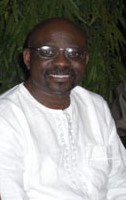
Patrick Oseloka Ezepue
PhD, PGCertBA, PGcertLTHE, FHEA-UK, FNS
Patrick is the founding Director, International Centre for Research and Human Development (ICREHUD), www.duicrehud.com, Dominican University, Ibadan, Nigeria, www.dui.edu.ng;Director of Research and Innovation, International Centre for Research and Enterprise Development, (ICRED), UK, www.icred7e.com; Professor of Statistics & Business Analytics, Department of Mathematics and Computing, Coal City University, Enugu, Nigeria, www.ccu.edu.ng; Co-founder, African Higher Education and Research Observatory (Afrihero), UK, www.afrihero.org.uk and Convener, Nigerian Mathematics, Finance, Statistics & Economics Research Consortium (NIMFSERC), Afrihero, UK.
Patrick is a Global Corporate Academic with extensive training, academic, and industry experiences in applied mathematical sciences, business, and finance. He has a fervent interest in actualizing Afrihero-ICREHUD Vision, which is ‘To recreate Africa and Developing Countries through Skills for Students, Graduates and Start-Ups (SSGS)’. And to train new kinds of academics, graduates, and professionals, who are extraordinarily empowered to use multidisciplinary knowledge to resolve challenging societal and organisational problems, with creating, synthesising, responsible, and ethical minds’.
Patrick passionately feels that our Definite Chief Aim in AFRIHERO, ICREHUD, and higher education generally, should be to get our minds and hands stuck into the muddy waters of Corporate-Academic Research and Enterprise Development, out of which we can pull out the shining prizes of continual entrepreneurial wealth creation, anchored on radical innovations in research, teaching, learning, assessments, consulting, and community services, which lead to excellent personal, organisational, enterprise, national, continental, and global socio-development.
Pricing & Registration
Registration and fees for the retreat (free for students covering the learning materials).
Students
- for Nigerian
- and African
- undergraduate
- and postgraduate
- students.
Academics
- Nigerian
- academics and
- professionals
African Academics
- African
- academics and
- professionals
International Academics
- International
- academics and
- professionals
What the registration fee includes
• Attendance certificates, copies of the documentation and materials
• Light refreshments and lunch
• Accommodation for students is included, but not for academics and professionals. It is expected that student guests will be accommodated in the hostels of host HEIs, where possible, but in order of registration dates.
• Once the hostels are full, the remaining students will have to find their own accommodations.
Joining instructions and suggested nearby hotels and indicative costs will be sent to you approximately one to two weeks before the event. If for any reason these are not received, please contact us at administrator@cepd.dui.edu.ng or info@afrihero.org.uk.
Payment
1. Please pay the registration fees at Dominican University Ibadan, First Bank Account No. 2032769768 and text/send email confirmation of payment to administrator@cepd.dui.edu.ng and bursar@dui.edu.ng.ng, so that we can send you the support materials for the event.
2. In your text/email please indicate the event reference tag 2020 SSGS Retreat.
3. Registration and payments will also be made at the event venue.
Please provide the following registration details to adminstrator@cepd.dui.org.uk and bursar@dui.edu.ng once the fees are paid so that we can schedule you to receive the support materials for the retreat.
In your email please indicate the event reference tag 2020 SSGS Retreat.
Our Sponsors
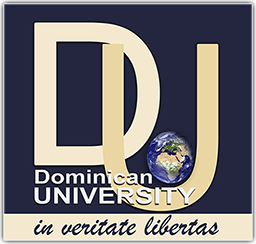
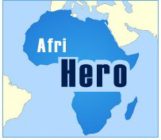
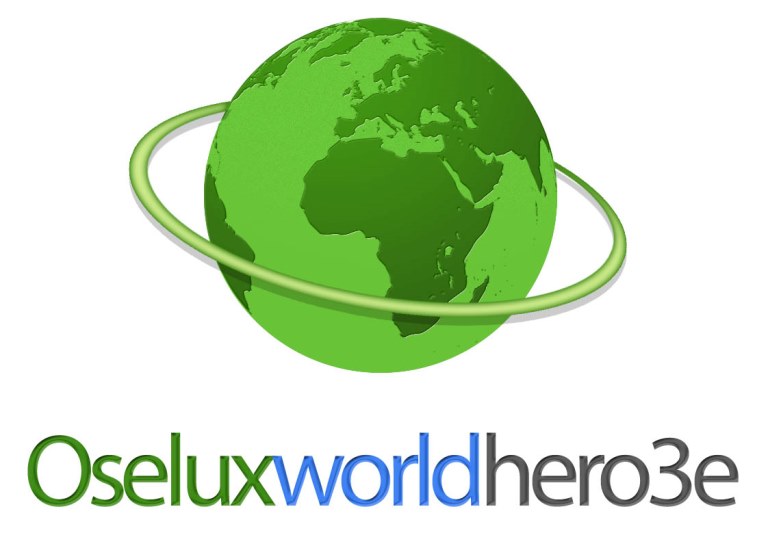
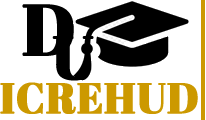
Request for Sponsors
To make the programme fees affordable for students, interested sponsors are kindly requested to provide support in cash or kind for the success of the programme.
The support can be part of the sponsors’ Corporate Social Responsibility contributions to Africa and developing countries’ socio-economic development, if the sponsors are corporate firms, or personal philanthropic support.
The support can cover the registration fees of a designated number of trainees, cost of venues, accommodation, transport, and feeding of the participants.
The fees will be progressively reduced depending on the level of support we receive. We will be overjoyed to be able to make the event entirely free to the end-users, if the support covers all the costs involved.
Sponsors will be formally recognized in the programme’s publicity and will be given special exhibition stands at the programme venues, if needed.
Should you need any clarifications regarding this event and how it can benefit you and your organisation, please feel free to contact us by email or telephone as stated below.
Patrick Oseloka Ezepue, PhD, PGCertBA, PGCE, FHEA-UK, FNSA
Director, ICREHUD, Dominican University, Nigeria
Email: info@afrihero.org.uk
Tel: +447772632150
Selected delegates testimonies!
‘Outstanding delivery by the Key Facilitator, Dr Patrick Ezepue, who is very knowledgeable in many disciplines. The workshop overall was enlightening, interesting, relevant, thought-provoking, and thorough’ –
‘It is a package that can rebrand the culture of research and postgraduate studies in Nigerian universities’
